Abortion in Film: THR Critics Recommend 12 Movies to Revisit

When Happening won the Venice festival’s Golden Lion in September of 2021, the timing could not be ignored. Audrey Diwan’s drama centers on a young French woman’s illegal abortion in 1963. The award was announced less than two weeks after the United States Supreme Court refused to block a Texas law that bans the procedure in most cases and shortly ahead of the court deciding on a pivotal Mississippi law that could have overturned Roe v. Wade. Eight months later, a leaked draft opinion suggests the Supreme Court is poised to overturn the landmark 1973 case that established the constitutional right to terminate a pregnancy safely.
The reality of abortion in many women’s lives, in defiance of cultural, religious and legal restrictions, is reflected in the stories we tell, in books, onstage and onscreen. A recently published research paper finds that abortion-themed plotlines in scripted television can help to expand viewers’ knowledge about the procedure. As chief TV critic Daniel Fienberg notes, television has been variously grappling with the topic and avoiding it for half a century:
More from The Hollywood Reporter
President Biden Calls Supreme Court Abortion Ruling a "Sad Day for the Court and the Country"
Hollywood on the Overturning of Roe v. Wade: "Today's Supreme Court Opinion Will Live in Infamy"
It’s been 49 years since the two-part “Maude’s Dilemma” — written by future Golden Girls and Soap creator Susan Harris — premiered, but the choice faced by Bea Arthur’s title character, finding herself pregnant at 47, and the determination of Norman Lear’s show to discuss that choice in depth, and engage in a nuanced debate, would be provocative in an American broadcast sitcom today. It’s still incredibly rare to find TV comedies dealing with actual abortions (see: GLOW and The Handmaid’s Tale), though shows like Girls and Sex and the City used it as a conversation piece. Frequently, American television falls back on abortion being a thing characters talk about on-camera, do off-camera and then never speak of again, which makes Shonda Rhimes’ Scandal and Grey’s Anatomy, and the way the procedure impacted Olivia Pope and Cristina Yang, respectively, so important, contextualizing and complicating the choice made by those strong characters.
—————–
With generally greater artistic license on the big screen, abortion has been a perennial subject for filmmakers around the world. Here, THR critics look at 12 films that explore reproductive choice as a crucial aspect of women’s lives. Whether they’re downbeat, melodramatic, harrowing or tinged with comedy, these movies’ intelligence and sensitivity deepen our understanding of women’s experience.
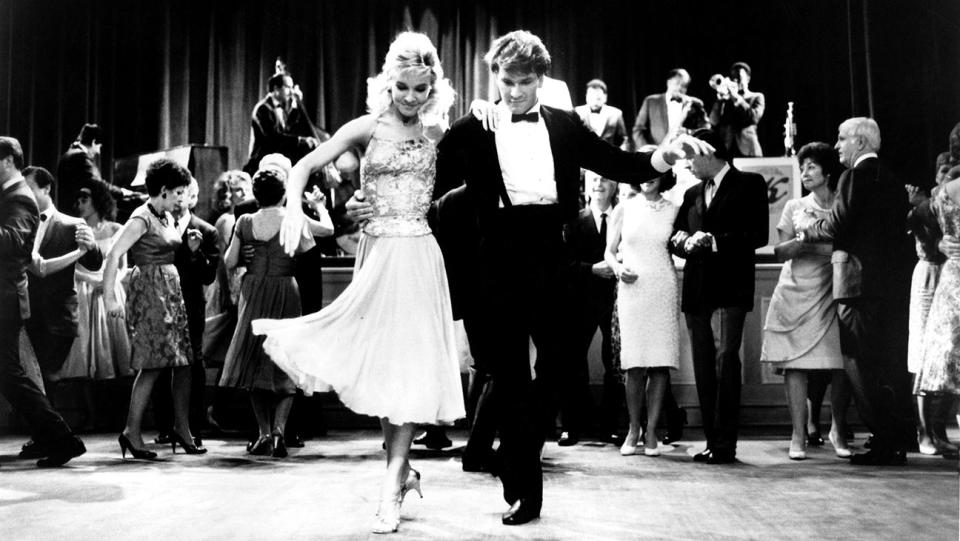
Vestron Pictures/courtesy Everett Collection
Dirty Dancing (1987)
Dirty Dancing‘s cultural legacy may be most strongly associated with Johnny and Baby’s sizzling chemistry and sweet dance moves. But at the heart of Eleanor Bergstein’s script is a clear and unapologetic argument for reproductive choice. Set in the 1960s, the drama sees a working-class girl named Penny (Cynthia Rhodes) left in immense pain after a botched back-alley abortion: “The guy had a dirty knife and a folding table,” her friend bitterly recalls. “I could hear her screaming in the hallway.” Notably, however, Penny’s choice to abort in the first place is never questioned — not even by Baby’s strict father, a doctor who helps her heal afterward. Rather, the film lays the blame for her ordeal on the economic and legal barriers that kept Penny from a safer procedure. In doing so, Dirty Dancing stands as a stark testament of what was gained with Roe v. Wade — and what we stand to lose if those rights are taken away again. — ANGIE HAN
4 Months, 3 Weeks and 2 Days (2007)
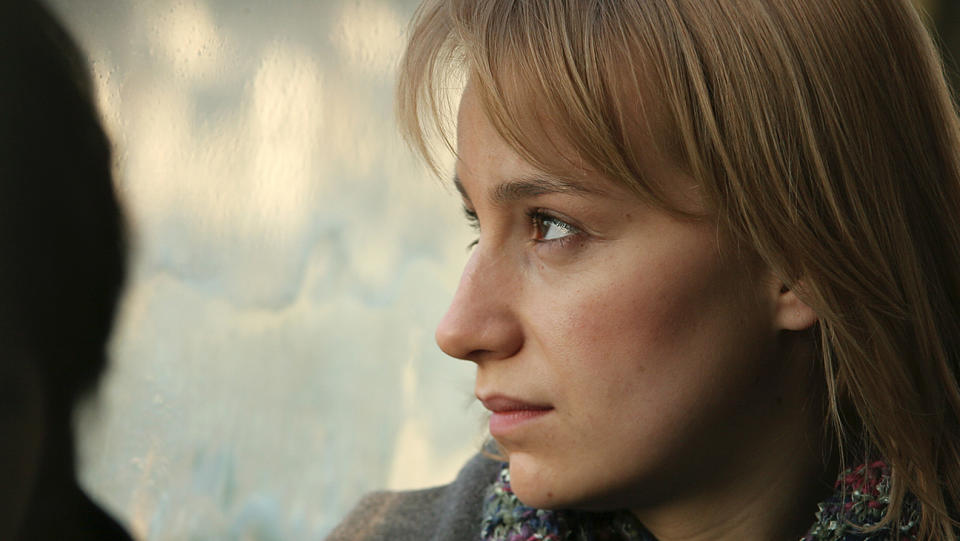
IFC FIlms/Photofest
Set in 1987 Romania, during a period dubbed the Golden Age by the country’s authoritarian regime, Cristian Mungiu’s Palme d’Or winner follows a young woman’s struggle to procure an illegal abortion. Laura Vasiliu is Gabita, the na?ve college student who’s desperate to put her unplanned pregnancy behind her, but it’s through the eyes of her stronger-minded friend Otilie (Anamaria Marinca) that this quietly scathing drama unfolds, in excruciating and suspenseful real time. Together the roommates face an abortionist (Vlad Ivanov) who turns out to be a predator, but it’s Otilie who negotiates her way through layers of corruption and day-to-day bureaucracy, making agonizing sacrifices for her friend. By film’s end her eyes have been ripped open not only to a deep societal malaise but to a life-changing understanding of how vulnerable women are in a system that judges and controls them. — SHERI LINDEN
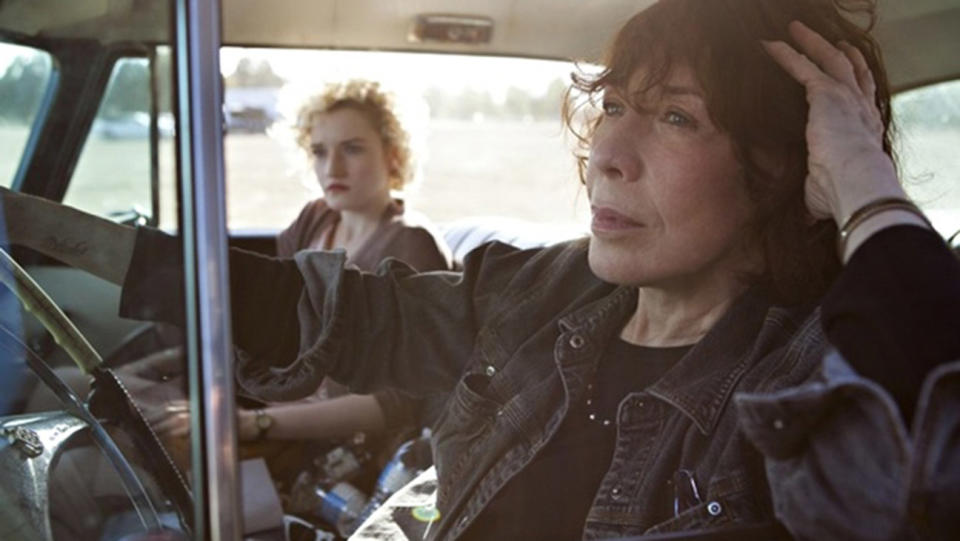
Grandma (2015)
In Paul Weitz’s small-scale but consistently funny and poignant comedy-drama, Lily Tomlin is in her glorious element as an ill-tempered lesbian on an all-day odyssey across Los Angeles to raise the $600 her granddaughter (Julia Garner) needs for an abortion. The termination of a pregnancy is the engine driving the plot, but that sorrowful step is treated with the gravity it warrants in a story that’s also about the many imperfect paths of motherhood. In its understanding of abortion as a regrettable but necessary option in many young women’s lives, the film avoids the overly self-congratulatory, in-your-face stance of some recent, similarly themed films, opting instead for admirable frankness, intelligence and sensitivity. — DAVID ROONEY
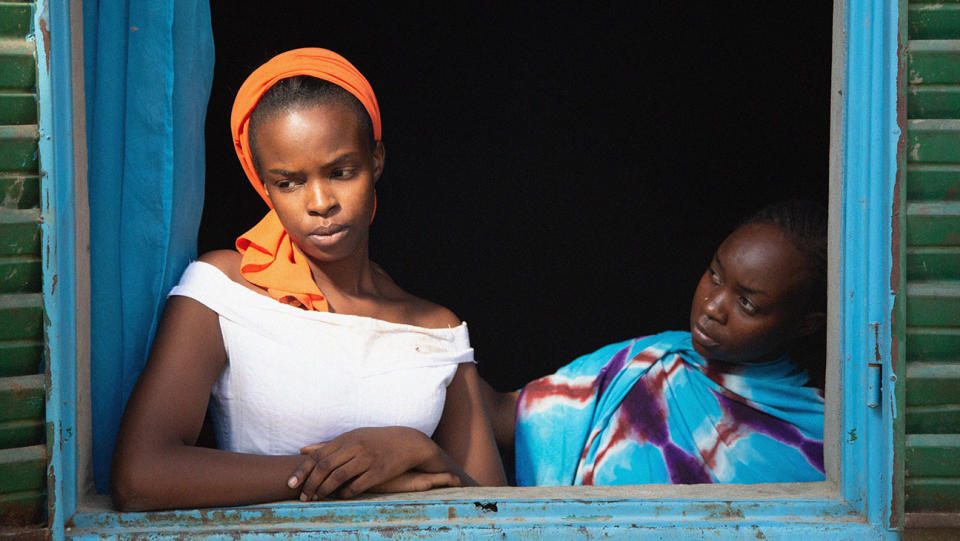
Courtesy of Pili Films, Mathieu Giombini
Lingui, the Sacred Bonds (2021)
When Amina (perceptively played by Achouackh Abakar Souleymane), a hardworking single mother, discovers that her quiet 15-year-old daughter, Maria (Rihane Khalil Alio), is pregnant, she resolves to help her by any means necessary. How to get an abortion in a country where the procedure is technically legal but impossible to access is the driving force of Chadian director Mahamet-Saleh Haroun’s delicate and meditative drama. Teaming with cinematographer Mathieu Giombini, Haroun plumbs the depths of female bonds to create a gorgeous, affecting film about the lengths to which women will go in order to protect themselves and one another. — LOVIA GYARKYE
Never Rarely Sometimes Always (2020)
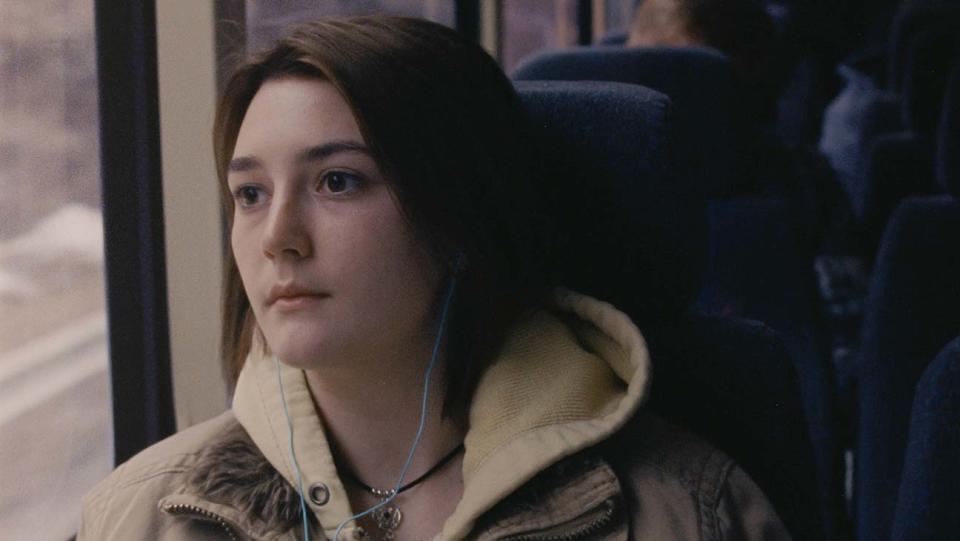
Courtesy of Sundance Institute
A transfixing account of a small-town teenager dealing with an unplanned pregnancy, Eliza Hittman’s drama offers a candid and clear-eyed contemplation of abortion as a choice arrived at not with hand-wringing but with sobering pragmatism. Autumn (Sidney Flanigan) and Skylar (Talia Ryder), her steadfast cousin, embark on an unsettling odyssey from Pennsylvania to New York, where Autumn can end her pregnancy without parental consent. The awful solitude of her predicament is countered by the warmth of the girls’ closeness. There’s never a showy moment in either of the lead performances, and yet we come to know these two young women intimately during a journey more often traveled in silence than conversation. The teen-abortion factor tags this as an issue drama, and in the most unconventional way, it is — raw, haunting and painfully real. But it’s perhaps better defined as a moving snapshot of female friendship, solidarity and bravery. — D.R.
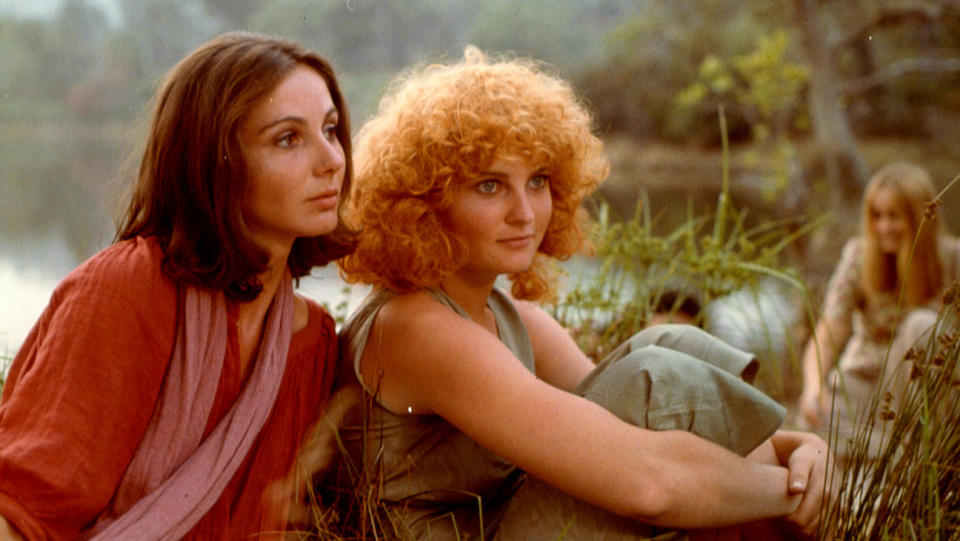
Courtesy of Toronto International Film Festival
One Sings, the Other Doesn’t (1977)
Agnès Varda’s ode to female friendship and women’s liberation traces the bond between two young women over a dozen years, beginning in 1962. That bond is forged when Apple (Valérie Mairesse), a 17-year-old with a fiercely independent streak, secures the money needed for her new friend Suzanne (Thérèse Liotard), an overwhelmed mother of two toddlers, to have a safe abortion — across the French border, in Switzerland. “Free will is philosophy in action,” the feisty teen proclaims, and when she and Suzanne meet again, 10 years later, they’re both participating in a courthouse protest over an abortion trial. Made by one of cinema’s great innovators, this melodrama with songs (lyrics by Varda) unfolds against the political awakening of the 1960s and ’70s, when gender roles and the idea of family were being questioned and reinvented. Varda’s feminist vision embraces love, whimsy, joyful bohemia and tenderness no less than healthy anger over injustice. — S.L.
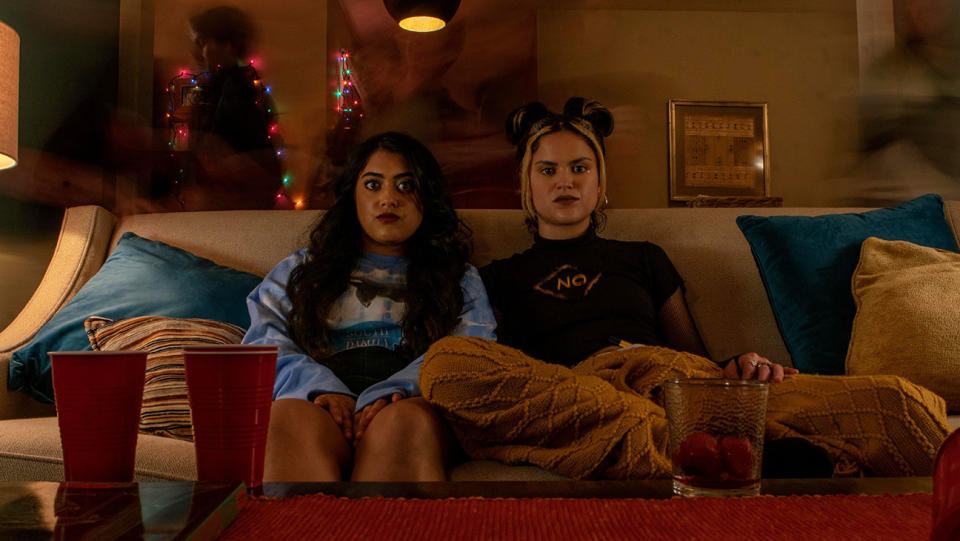
Brett Roedel/Hulu
Plan B (2021)
Buddy comedy meets road trip movie in Natalie Morales’ charming film about two South Dakotan teens’ panicked, chaotic search for the morning-after pill. After a condom falls out of her vagina the morning after losing her virginity, and after being denied access to Plan B by a morally opposed pharmacist — citing a real legal clause — Sunny (Kuhoo Verma) enlists her best friend, Lupe (Victoria Moroles), for a three-hour drive to the nearest Planned Parenthood. With its strong casting and focus on the experiences of girls who aren’t white, Morales’ film is a necessary addition to the ever-evolving subgenre of movies about teens forced to circumvent a cruel lack of access to reproductive health services. — L.G.
Portrait of a Lady on Fire (2019)
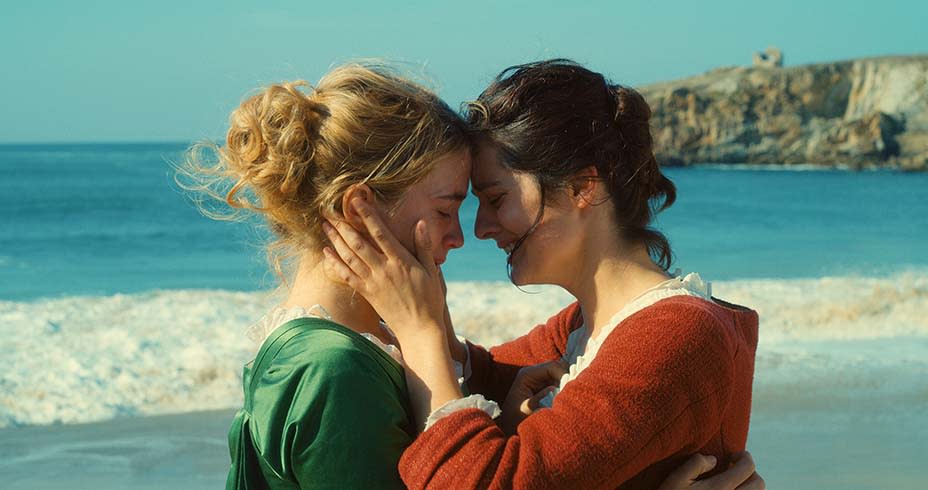
Pyramide Films
The slow-burn chemistry between an artist (Noémie Merlant) and her initially unwilling subject (Adèle Haenel) — who’s also a reluctant bride-to-be — ignites this sensuous and exquisitely measured period piece. Set in late 18th century France, Céline Sciamma’s drama is a lesbian love story, but its true subject is the restrictions placed on women’s lives, and the secret societies they form to protect one another. When a young housemaid, Sophie (Luàna Bajrami), reveals to the two central characters that she’s pregnant and doesn’t want to be, they help her, and in the process their feelings for each other deepen. The film offers a benevolent vision of abortion as a form of sisterly caretaking. In a remarkable scene that Sciamma has said was inspired by Annie Ernaux’s autobiographical memoir L’événement — the source material for Golden Lion winner Happening — the women memorialize Sophie’s visit to the female herbalist who performs her abortion: They capture the event in a painting, insisting on its importance and retrieving it from shame. — S.L.
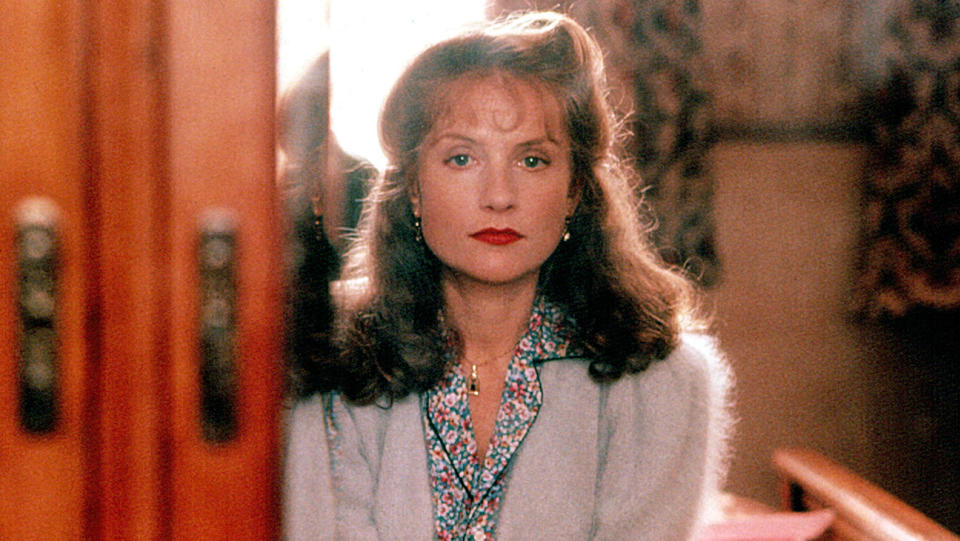
TriStar Pictures/Courtesy Everett Collection
Story of Women (1988)
Claude Chabrol’s film stars the ineffable Isabelle Huppert as Marie Latour, a complicated character based on Marie-Louise Giraud, who in 1943 was the last woman to be guillotined in France, after being convicted for her illegal work as an abortionist. This gripping and complex tale about an enterprising housewife who begins performing abortions in her kitchen to support her family in Vichy France is made all the better by Huppert’s resolute and unnerving performance (she was named best actress at the Venice Film Festival). Chabrol’s layered tale resists sentimentalizing Latour’s work, resulting in an absorbing portrait of a woman trying to make ends meet, and in the process providing a service to women in need. — L.G.
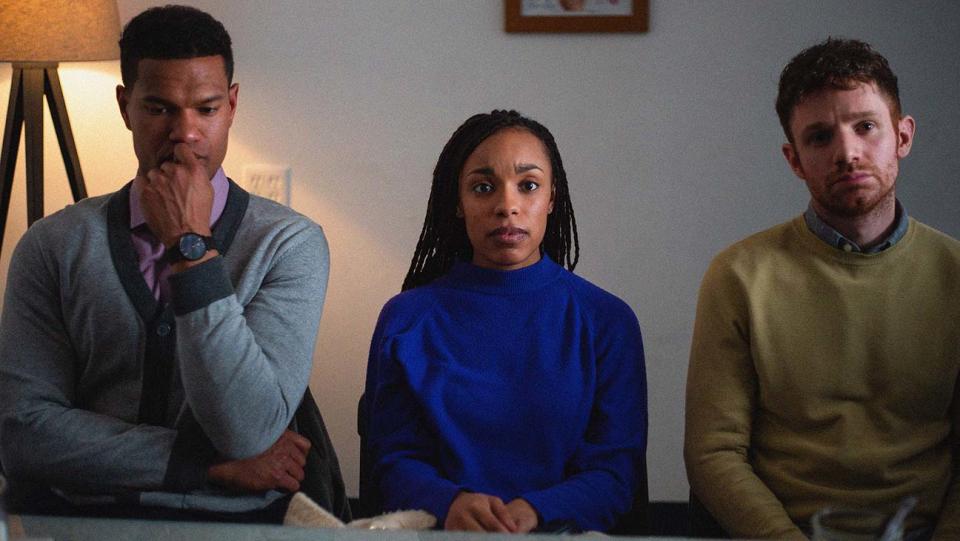
Courtesy of Monument Releasing
The Surrogate (2020)
Without an ounce of preachiness or melodrama, writer-director Jeremy Hersh’s first feature asks tough questions about prenatal testing, eugenics, reproductive rights, parenting, special-needs children and abortion. This piercingly lucid ethical drama is propelled by a performance of stunning psychological insight and raw feeling from Jasmine Batchelor as a single woman who has volunteered to be a surrogate and egg donor for her gay best friend (Chris Perfetti) and his husband (Sullivan Jones). The film is rendered even more affecting by the careful consideration it gives to her character’s fluctuating decision-making in the face of complicating factors. There are no movie-of-the-week histrionics, and zero moralizing — just perceptive, thoroughly absorbing adult drama. Above all, the film is finely attuned to the shifting emotional wavelengths of a female protagonist facing difficult problems for which there are no right or wrong solutions, let alone easy ones. — D.R.
Unpregnant (2020)
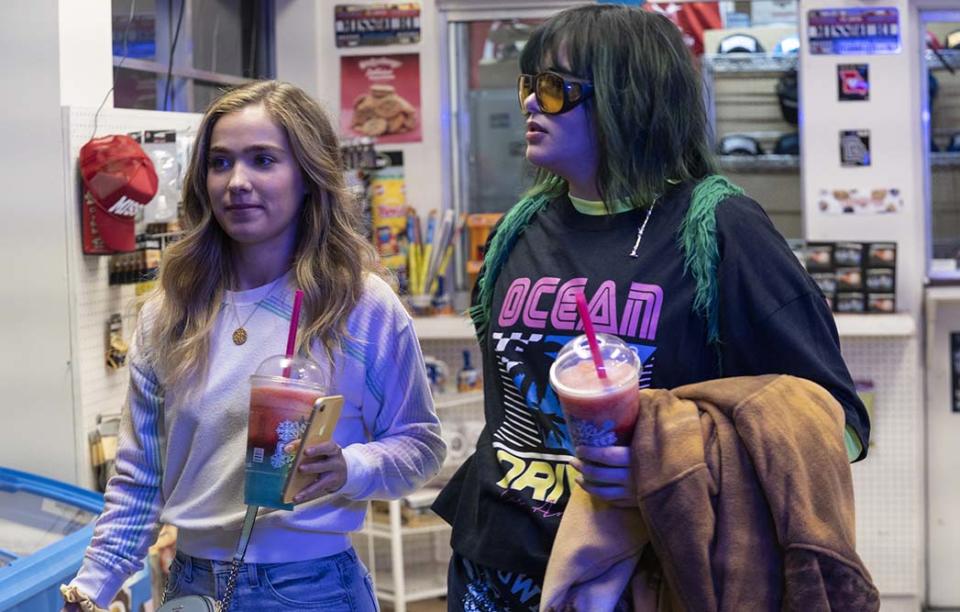
Courtesy of Warner Media
It says nothing flattering about America that “teenagers embark on long trips to avoid unwanted pregnancies” is becoming a cinematic formula of its own, but at least the movies themselves are pretty good. Rachel Lee Goldenberg’s Unpregnant puts a buddy-comedy spin on the premise, as estranged childhood pals Veronica (Haley Lu Richardson) and Bailey (Barbie Ferreira) hit the road to get the former an abortion. The girls’ predicament is treated sensitively and matter-of-factly, and stands as a sobering acknowledgment of the challenges pregnant young people face even today. But there’s much more to the journey than just Veronica’s quest to get an abortion. In the pockets of silliness, joy, and flat-out weirdness they experience along the way, Unpregnant becomes a reminder that behind every procedure is a whole person and a whole life. — A.H.
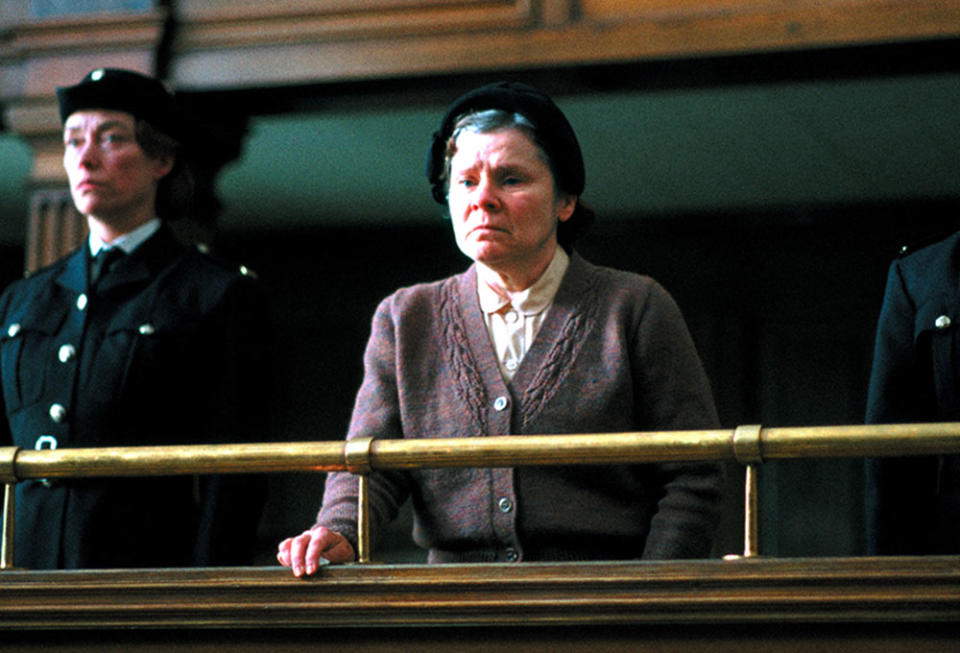
Courtesy of Everett Collection
Vera Drake (2004)
In Mike Leigh’s shattering 2004 drama, the title character played with cheery bustle by a never-better Imelda Staunton is a middle-aged housewife in 1950 working-class London, who tirelessly tends to her family, dashes between cleaning jobs and visits sick friends and relatives in whatever spare time she has left. What neither her family nor her friends know is that this salt-of-the-earth woman provides back-street abortions, an unpaid service she describes as “helping young girls out when they can’t manage.” With nonjudgmental compassion and not a whisper of melodrama, Leigh observes the vast difference in options for pregnant women on opposite sides of the class divide at a time when abortion was illegal in Britain, quietly threading a sense of crushing dread as the film builds to Vera’s inevitable exposure and arrest. — D.R.
This story originally posted Oct. 8, 2021.
Best of The Hollywood Reporter
